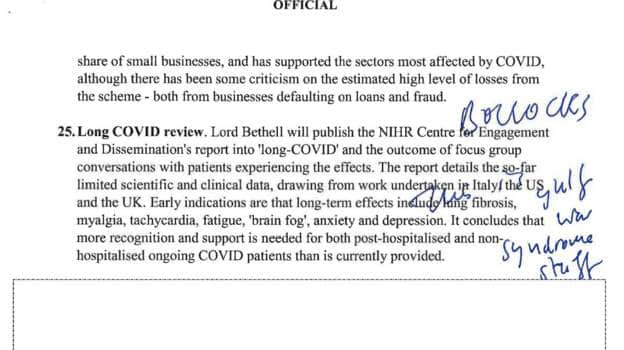https://www.bbc.co.uk/news/live/uk-politics-67634545
Former Prime Minister Boris Johnson has arrived for two days of questioning at the UK Covid-19 Inquiry at around 07:00.
In an interview with Sky News, Policing Minister Chris Philp joked: “It’s the first time Boris has ever been early for anything.”
The inquiry has already heard that much of the decision-making in the pandemic didn’t take place in cabinet, or in the Cobra emergency committee, but in Downing Street itself.
The prime minister, his advisers and a small number of key ministers tended to be involved. That often included the Chancellor Rishi Sunak but also cabinet office minister Michael Gove and the health secretary Matt Hancock.
The final call, though, would have to be made by the prime minister. And his decision-making has come under intense scrutiny in this inquiry.
BJ is, of course, expected to lie, or at least obfuscate, throughout his appearance at the inquiry - it’s habitual for him … 
Boris Johnson has been unable to supply the Covid-19 inquiry with any of his WhatsApp messages for almost the entirety of the first lockdown.
He was initially unable to hand over WhatsApp messages to the inquiry because he could not remember the passcode. Earlier this year he was able to access the device with the support of experts and it had been assumed the messages were passed on.
However, Johnson has told the inquiry that even with access to the device, experts were unable to retrieve any of his messages from January 31 to June 7, which covers a critical period from the run-up to the first Covid lockdown to the easing of restrictions. “The technical team has been unable to determine the cause of this,” he has told the inquiry.
A source close to Johnson denied that he had deleted the messages. Rishi Sunak has separately told the inquiry that he no longer has access to WhatsApp messages from his time as chancellor.
Well, that’s convenient … and reeks of conspiracy … 
Inside the inquiry, Johnson is asked by lawyer Hugo Keith what the main mistakes of the government’s response to the pandemic were.
Johnson says he would struggle to list them in a hierarchy, but insists he and his government did their “level best”. He admits mistakes were made, saying “there were unquestionably things we should have done differently”.
He says he takes “personal responsibility for all decisions made”.
That means that he will have plenty of reasons to blame other people/factors … 
Here we go … obfuscation:
Did government actions lead to excess deaths?
Keith next asks Johnson about whether he believes government decision-making led “materially” to excess deaths in the UK.
The pair go back and forth on whether the UK was the second-worst country for excess deaths in Western Europe (1).
“I think the UK from the evidence I’ve seen was well down the European table and even further down the world table,” Johnson says, adding that an “extremely elderly population”, a high rate of “Covid-related morbidities” and high population density also influenced the death rate (2).
Keith asks again whether government actions materially affected the outcome.
“The answer is I don’t know,” Johnson replies.
(1) That’s the appalling status that I recall … 
(2) BJ’s recollections vary … 
As I read elsewhere:
Having been prime minister for three years with all the House of Commons debating that entails, Johnson is used to being scrutinised at despatch box exchanges where the prime minister has raucous supporters sitting behind them and usually gets the last word.
But the format and power dynamics of the inquiry are very different. Hugo Keith KC has visibly lost patience with some of the politicians he has interrogated so far, demanding more concise answers and interjecting when he feels they are wandering away from the topic.
Hopefully, there will be summaries of BJ’s “evidence” later.

